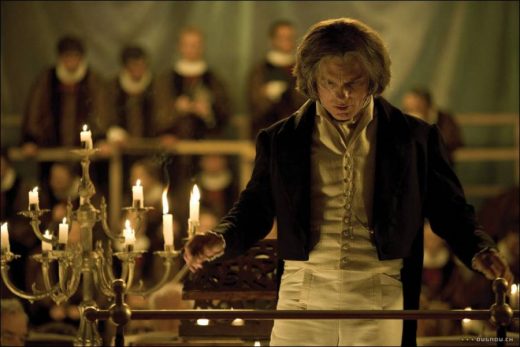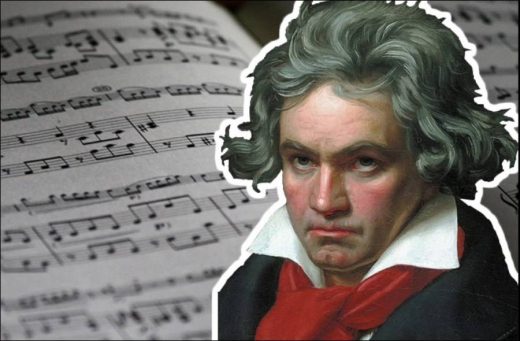Great composers are difficult to understand. Music not only becomes a collection of sounds that are pleasing to the ear, but also becomes a business where every detail is carefully followed. It is necessary to know the different interpreters who perform the works of the composer and to listen to all these recordings over and over again.
In order to understand Beethoven and to interpret his works, it is necessary to explore the history of the period in which the composer lived, the political events of that period and the inner world of the composer, as well as the musical terminology. If this composer is a composer like Beethoven, this situation can get even more complicated.
In an abundance of time, given that the era we live in has closed all humanity from outside to inside, perhaps condemned it, I rediscovered the life of this extraordinary composer by reading one of the books that came out on the occasion of Beethoven’s 250th birthday. The first book I read about the composer was a biographical work, leaving aside what I had read about Beethoven before. I listened to my Beethoven recordings from the beginning as I picked up the book and drifted between its sentences. I researched the history of Beethoven’s time and the political events of the period again.
Understanding Beethoven
Is understanding a composer just listening to his works? In order to understand the composer, it is necessary to know the other composers who produced works during the composer’s lifetime, and even the composers who lived before him. Their works, their perspectives on life and the attitude of the society, especially those of power, should also be taken into account. Of course, for those who want to deal with the history of music as a whole, how the death of the composer led or affected those who came after him should also be considered.
Those who read this book will of course encounter other extraordinary composers in the history of music such as Haydn, Mozart, Bach. Haydn, who is seen as the father of the symphony in most music history sources and who wrote 104 works in this field, took part in the service of the nobility until the age of sixty. The composer, who is in the service of the nobles, is no different from other employees.
Haydn had to wear the uniform worn by the palace servants while he was working. Mozart revealed his resentment against the aristocracy in his comic operas. Beethoven is a holy hero. There were also those who called the 19th century, the period in which the composer lived, as the Age of Beethoven. Beethoven also influenced composers who came after him. The Ninth Symphony, which is included separately in the work, opened the way to Wagner’s universal art (gesamtkunstwerk). The mastery of playing techniques, which was said for Mozart and thought to have started from his childhood, emerged for Beethoven in a libertarian, creative and innovative way.
Beethoven comes from a family of musicians. His grandfather is a court musician, and his father (his youngest son) Johann van Beethoven is a tenor in the palace choir. Beethoven learned to play the violin and piano from his father. According to sources, his relationship with his father was quite difficult for Beethoven. It is said that his father was an alcoholic.
Beethoven met other master composers. At the age of 17, he meets Mozart, who, like himself, goes through difficult roads with his father, and hears Mozart’s praises. Beethoven also met Haydn in 1792 and dedicated the second of his 3 Piano Sonatas to Haydn. According to a rumor cited by Kutluk, Haydn requested that Haydn’s student description be placed on the cover of his work, but Beethoven refused this request, saying that he had learned nothing from him.
Beethoven had the chance to meet another great name in German history, Goethe. His thoughts about Goethe, whom he used to love very much, change after meeting him. According to Beethoven, the poet is a flatterer to the nobility and cannot fulfill the artist’s duty to be the teacher of the nation. Goethe does not hold back against these criticisms by excluding the composer’s music and defines Beethoven as an extremely wild person who does not make life enjoyable for himself and his surroundings (Thayer, 1921: 538).
Beethoven was not anti-noble, he considered himself superior to the nobility, even though he was with the nobility throughout his life, and even though he devoted most of his work to them. This is the reason for the conflict between him and Goethe. The period that started with Beethoven started a new tradition. The composer presents his works without order or necessity of a function of the work.
Visits: 63





